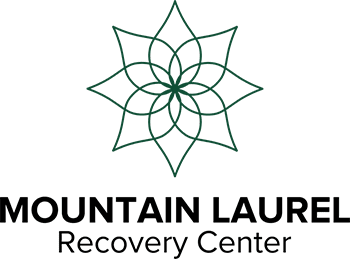Recovery is a transformative journey of resilience and courage. One of the most influential factors that can significantly impact this journey is your mindset. Here are some key reasons why having a positive mindset is essential in recovery:
- The Mind-Body Connection: The mind and body are intricately connected, and the power of positivity extends beyond mere optimism. A positive attitude can contribute to your overall well-being, aiding the body’s healing process and promoting resilience in the face of challenges.
- Shifting Perspectives on Challenges: Recovery is not without challenges, and maintaining a positive mindset allows you to shift your perspective on difficulties. Instead of viewing setbacks as overwhelming obstacles, a positive mindset enables you to see them as opportunities for growth and learning.
- Resilience: Resilience is a critical component of successful recovery. Adopting a positive mindset fosters resilience by instilling a belief in your ability to bounce back from setbacks. This resilience becomes a powerful asset, helping you navigate the ups and downs of recovery without giving in to the discouragement that can lead to relapse.
- A Sense of Empowerment: Positivity empowers you by giving you control over your own life. Instead of feeling like a passive participant in your recovery journey, you’ll recognize your ability to make positive choices and take intentional actions toward lasting sobriety.
- Enhanced Motivation and Commitment: Motivation is a driving force in any recovery journey. A positive mindset serves as a wellspring of motivation, reminding you of the rewards and benefits of sustained sobriety. It is a guiding light during challenging times, reinforcing the commitment to a healthier, substance-free lifestyle.
- Healthy Coping Mechanisms: Substance abuse often serves as a coping mechanism for dealing with stress and negative emotions. A positive mindset encourages the development of healthier coping mechanisms, such as mindfulness, exercise, and self-reflection. These tools become essential in managing triggers and stressors without resorting to substances.
- A Supportive Environment: Positivity is contagious, and those in recovery can influence their environment by fostering a positive atmosphere. Surrounding yourself with supportive and encouraging individuals creates a network of allies who uplift and inspire. This supportive environment becomes a pillar of strength during challenging times.
- Celebration of Small Victories: Recovery is a series of small victories that deserve celebration. A positive mindset allows you to appreciate and celebrate these accomplishments, reinforcing a sense of achievement and progress. By acknowledging even the smallest steps forward, you can build momentum and confidence in your ability to stay on the path of recovery.
- Emotional Well-Being: Emotional well-being is at the core of a positive mindset. Positivity contributes to mental and emotional stability, reducing the risk of succumbing to negative thought patterns that can lead to relapse.
- Physical Well-being: There is a strong connection between mental and physical health. Having a positive mindset can have tangible benefits on your physical well-being, including strengthened immune function, better cardiovascular health, and faster recovery from illness.
- Improved Relationships: Positivity can contribute to healthier and more fulfilling relationships. People are naturally drawn to those with an optimistic outlook, and a positive mindset can foster better communication, empathy, and the ability to build strong connections with family and friends.
- Longevity and Quality of Life: Those with a positive outlook on life tend to live longer and enjoy a higher quality of life. Positive emotions and a hopeful perspective contribute to better health practices, adherence to medical advice, and overall well-being.
- A Brighter Future: Ultimately, a positive mindset is a powerful force in shaping a brighter future. By focusing on the potential for growth, joy, and fulfillment, individuals in recovery can create a vision for themselves that transcends the limitations of their past. A positive mindset becomes the compass guiding them toward a life rich in purpose and meaning.
Ways to Stay Positive in Recovery
There are endless ways to stay positive in recovery. If you are looking for ideas, consider the following tips:
- Keep a gratitude journal filled with all the positive parts of your recovery journey.
- Repeat positive affirmations daily to remind yourself of all the good in your life and to shift your thought patterns away from the negatives.
- Practice mindfulness to stay in the present moment and focus on the now.
- Express yourself creatively through music, art, or writing.
- Attend support groups to connect with others going through similar experiences.
- Go outdoors and connect with nature and your surroundings.
- Be kind to yourself and practice self-care.
- Find joy in the simple things and laugh whenever you get the opportunity to do so.
Contact Us to Get Started
If you or someone you care about is struggling with substance use, we can provide the support you need. Located in Pennsylvania, Mountain Laurel Recovery Center offers various programs and services to guide you toward a lasting recovery. Please contact us today to learn more about our offerings and how we can help get you started on your journey to recovery.
